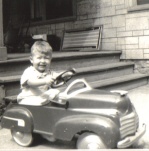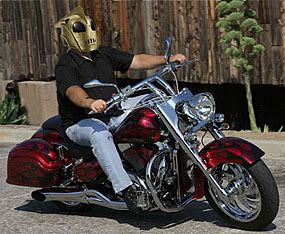Weight topic
28 posts
• Page 1 of 2 • 1, 2
Weight topic
I hear that it is better to under build rather than overbuild. But what I don't get is, some people say their tear is shaking while towing going 60 or so and that they had to put extra weight, i.e. supplies, in the tear to give it some more weight to stabilize it. Why not just let it be heavy during the build to eliminate that? That might be a dumb question because I can see the issue with overbuilding, but then again, I can't...I'm confused here...
It may be well doubted whether human ingenuity can construct an enigma...which human ingenuity may not, by proper application, resolve." - Edgar Allen Poe
-

Oak - Teardrop Inspector
- Posts: 16
- Joined: Thu Jul 19, 2007 12:12 pm
- Location: Greensburg, IN
I wonder if you may have misunderstood some things. I know people move things from front to back of a trailer to get the tongue weight they want. I don't think over building is a great problem except for people with smaller tow vehicles. My personal feeling is you are going to over build then do it in the frame/floor area. I think weight down low seems better than top heavy. If you tow with a pickup you can be less concerned about the weight than some one with a compact car.
Brwbier
Brwbier
-

BrwBier - 1000 Club

- Posts: 1120
- Images: 100
- Joined: Fri Oct 21, 2005 8:28 pm
- Location: Sheboygan, WI

 Shaking or bouncing? It is possible to get it too light for the springs. Most don't do that. It is very important to keep the whole thing in mind as you build. If you make it too heavy you will have tire and breaking issues.
Shaking or bouncing? It is possible to get it too light for the springs. Most don't do that. It is very important to keep the whole thing in mind as you build. If you make it too heavy you will have tire and breaking issues.




